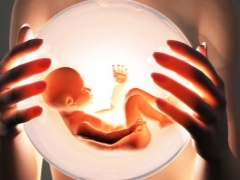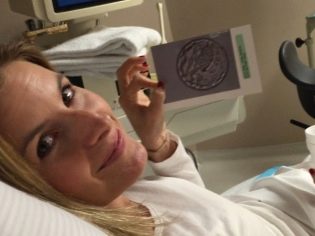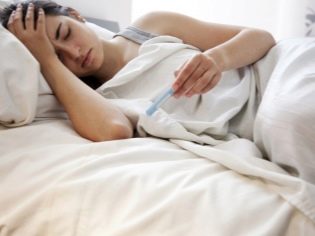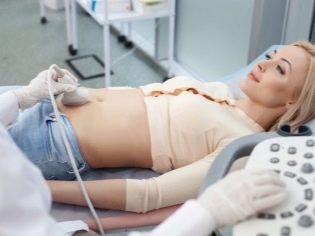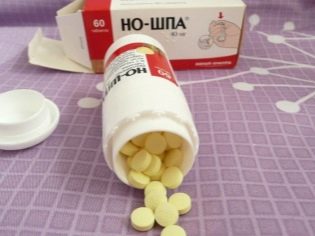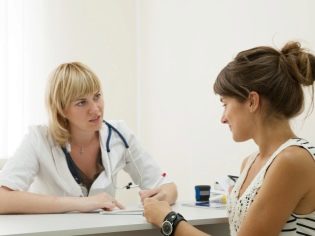How to behave after embryo transfer? Recommendations
Embryo transfer to the uterus during IVF is the final “chord” of the artificial insemination procedure. After the grown embryos, which have been cultured for several days in a nutrient medium, will be transferred to the uterus, a new, exciting and very responsible period begins. This is a time of anxious waiting for an answer to the main question - whether the pregnancy will take place, whether the IVF protocol will be successful.
In this article, we will describe how to behave properly after replanting, and whether it is possible to increase the chances of the onset of pregnancy.
First hours
The procedure of embryo transfer is not painful and simple at all. It lasts only five minutes. With the help of a thin catheter, the doctor introduces a certain amount of embryos with a small amount of nutrient medium into the woman's uterus. At this competence of doctors ends. What will happen after this in the uterus, for physicians is the same secret as for the patient herself.
For at least two weeks, the question of whether the embryos could be implanted into the endometrium of the uterus remains open.
The probability of success at the first attempt of IVF is about 35-45%. The probability of implantation is influenced by the woman’s age, her state of health, her lifestyle, the quality and viability of the resulting embryos and the condition of the endometrium itself, its readiness to “accept” the ovum. Much depends on luck and faith, on "higher powers", if you want. Therefore, it is considered that neither doctors nor the patient can significantly affect the implantation. But do not forget about a small but important component of success - the right lifestyle and compliance with the recommendations.
It is difficult to say whether they affect the effectiveness of the protocol, but failure to comply with the recommendations may well affect the unsuccessful outcome of the attempt.
After embryo transfer, it is recommended that the woman lie down in a horizontal position with her legs elevated for the first hour. Most often - on the gynecological chair, on which the embryo transfer was performed. Then she is allowed to get dressed and leave the clinic. The doctor must give his recommendations on the behavior after embryo transfer.
First days
In the first days, the embryos usually float in the uterus, from the third day after the transfer, it is already possible that the embryo is implanted. The process of implantation itself after transfer usually lasts longer than when implanted after natural conception. A woman should try to spend as much time as possible in peace. Optimally - lie down, read, watch a kind and positive cartoon. All household chores are better to postpone or entrust to someone from relatives. Sleep, good nutrition and rest in these first days after the final stage of the IVF procedure are of great importance.
Among the common sensations after the transfer - a slight pulling pain in the lower abdomen, in the area of the ovaries, a little more abundant discharge, sometimes smearing, sometimes even cinnamon or pinkish. A woman may experience dizziness, nausea, she often has a headache. This is due to the effects of hormonal stimulation of the ovaries.
If the state of health worsens, the woman has a fever, pulls around the ovaries, bleeding occurs, there is marked bloating, you should immediately call an Ambulance - it is possible that the symptoms of ovarian hyperstimulation appeared. This condition needs medical attention.
After a couple of days, you can spend more time on your feet. But immediately headlong into the usual rhythm of life is not worth it. It is desirable for a woman to exclude any stresses and feelings, eat well, exclude sex, breathe fresh air. You can not take hot baths, sunbathe, swim, visit the sauna and bath.
On the 14th day after the transfer, you can take a blood test for plasma hCG concentration. If the pregnancy has occurred, the level of the hormone will be elevated. At 21 days you can do the first ultrasound, which can confirm the fact of pregnancy, as well as determine how many embryos from the transplanted ones have taken root. On the 28th day after embryo-transfer, they do a repeated ultrasound, which makes it possible to establish the pace of development of each baby who has taken root, as well as their viability.
Up to 14 days from the moment of transfer to live the hardest. Women describe this time as a long and painful expectation. Experts recommend to stop listening to yourself in search of signs of pregnancy and to direct forces on the organization of a correct lifestyle, which will contribute to the success of the IVF protocol. Let's look at some aspects of these recommendations.
Bed rest
On the first day - a maximum of two - bedding and half-bedding is desirable. At the same time, it is necessary to place a small roller or pillow under the lower back, so that the pelvis is slightly higher than the body. Bed rest in the first days does not mean that a woman needs a nurse, since she cannot drink or go to the toilet. She can go to the toilet herself, as well as walk to the kitchen and pour herself some tea. But she still has to spend 95% of the time in bed.
Already on the third day a woman can and should start to get up, gradually alternating periods of rest with periods of light and easy activity. A longer stay in a horizontal position is unacceptable - the pelvic organs from prolonged lying will be worse filled with blood, which can significantly reduce the likelihood of implantation.
A week after transplanting, a woman can lead a normal life, observing the usual motor regime. The ban imposes weightlifting, jumping, training in the gym, cycling, running. But evening walks in a park or a public garden, away from gassed and noisy highways, would be helpful.
Medicines
Many women in the stimulated protocol are recommended progesterone support after transfer. It usually starts on the graft day. The specific product and individual dosage are recommended by the fertility specialist who conducted the protocol.
Progesterone is important for the implantation to be more successful, as well as for the preservation of pregnancy in the very first days after implantation, because the surviving fertilized egg may well reject.
The woman should be given special attention to these drugs. Put a reminder on the phone, because they are desirable to take daily at the same time. Skipping pills, increasing or decreasing the dose without the knowledge of the physician is strictly prohibited. Progesterone drugs are taken until the diagnosis of pregnancy. If it has come, sometimes you have to drink this pill until 12-14 weeks of gestation in order to preserve it. If according to test results and ultrasound IVF protocol was unsuccessful, the drug should be stopped. 2-3 days after the cancellation will come monthly.
No other drugs after the transfer should not be taken. Any tablets, suppositories, syrups must be taken exclusively with the permission of the doctor. Often, to reduce discomfort after the protocol - pulls the lower back, a headache - it is allowed to take antispasmodics - “No-silo”, “Papaverine”. With an increased level of anxiety, a woman may be allowed to take light vegetable sedatives - motherwort (not alcohol tincture!), Valerian (tablets).
Nutrition
Food should be about the same as at the stage of preparation for IVF - with a predominance in the diet of protein foods, fresh fruits and vegetables, fresh greens. A woman can continue to take a multivitamin that was approved for her by a doctor at the preparatory stage for the protocol, folic acid.
After embryo transfer nutrition should be given special attention, because during the first week it is important not to allow constipation. The delayed effect of hormonal therapy at the stage of superovulation stimulation can occur right now, causing intestinal disorders, diarrhea, constipation, and increased gas formation. Progesterone is also playing a significant role in these unpleasant processes - it relaxes the intestines, makes them somewhat “lazy”, peristalsis is disturbed.
Gases, constipation, diarrhea - all this can lead to an increase in the tone of the smooth muscles of the uterus. Because of this, the reproductive organ will start to be supplied with worse blood, as a result of which implantation will not take place or the pregnancy will be interrupted almost immediately after implantation.
It is important to avoid constipation, taking microclysters as necessary, and not to eat foods that contribute to the formation of intestinal gases - peas, muffins, yeast pastries, kvass, cabbage.
Eat optimally 5-6 times a day, in small portions, avoiding a full meal before bedtime. Do not forget that you need to drink at least 2 liters of clean drinking water per day, so that the metabolism is more dynamic and correct.
A large amount of dairy and dairy products should be introduced into the diet. But coffee and strong tea are contraindicated.
Sexual relationship
Sex is contraindicated in all cases without exception. The couple signs the corresponding informed consent at the stage of entry into the protocol. The reason for the ban also lies in the great risk of hypertonicity of the uterus during orgasm and sexual arousal. Not only sex is contraindicated, but also masturbation, and any other intimate actions that can increase the tone of the smooth muscles of the uterus.
Travels
It is not recommended to go on a journey after replanting embryos. Firstly, this is associated with an increased risk of complications after the application of aggressive hormonal stimulation, and secondly, the woman may at any time require the advice of the attending physician.
If the circumstances are such that it is necessary to go (for example, IVF was carried out in another city, and should return home), it is better to choose a trip by rail or by car. Fly on a plane because of the pressure drop is not worth it.
Disease prevention
To prevent implantation and carrying a fetus can cold, flu, ARVI. Therefore, prevention should be given special attention. Should dress for the weather. If the transfer was carried out during the cold season, after embryo transfer, avoid visiting crowded places, shopping malls, markets, public transport during rush hours - these are the places where it is easy to get infected with any virus during the season.
The hormones that the woman has taken to stimulate superovulation can significantly reduce the immune defense, and progesterone, which is taken at the current stage, somewhat reduces the natural defense of the woman’s body. It is possible the manifestation of old, chronic diseases - cystitis, sinusitis, hemorrhoids and others.
If there are signs of illness, you must immediately inform your doctor. He will tell you how and what can be cured in the early stage of exacerbation without harm to the embryo.
Psychological state
Do not underestimate the importance of psychosomatics for the success of the IVF protocol. Please note that women, who from the first day begin to experience, seek out the existing and non-existing symptoms of a possible pregnancy, are more likely to face failure. Women who are able to “let go” of the situation, distract themselves, turn their attention to something else, often become pregnant on the first attempt.
On the physical level, anxiety has a specific mechanism of action. Anxiety and anxiety cause stress, and stress becomes the cause of the development of so-called stress hormones in the body. These hormones block the production of sex hormones, which regulate the process of implantation and the subsequent development of the fetus.
According to common sense, the first signs of pregnancy cannot appear before implantation, and it can occur on the third, fifth, and even 10 days after embryo transfer. It is only after the attachment of the ovum to the woman’s body that mechanisms are launched that rearrange the work of all organs and systems for the upcoming pregnancy.
If the protocol was successful, many even before the test for hCG, starting from the 10th day after the transfer, may draw attention to the fact that the chest is slightly sore, there are tingling in the uterus, urination often appears, and drowsiness increases.
Such signs are considered by the people as one of the earliest signs of pregnancy, although official medicine does not recognize them, relying only on the principle of evidence, and the evidence will be only the presence of elevated levels of hCG in blood plasma on the 14th day after transplantation.
Tips
Here are some simple tips to help you observe. all recommendations after completion of the IVF protocol.
- Familiarize yourself with IVF statistics and immediately accept the fact that failure is more likely than luck. This will help to calm down, accept and more adequately perceive the result, whatever it may be.
- Protect yourself from quarrels, conflicts, finding out relationships, watching "bloody" films with scenes of violence - all this adversely affects your mood and well-being.
- If the work involves risks, exposure to harmful substances, toxins, noise, vibration, take a sick-list and spend these two weeks safe.
- Various "smart" appliances (washing machines, dishwasher, multi-cooker) will greatly facilitate your domestic work and leave more time for much-needed rest and sleep after the procedure.
- Do not rush to extremes and in search of peace to go somewhere on the warm sea coast. Being in the sun is contraindicated, besides acclimatization can cause a lot of trouble and interfere with the normal implantation of the embryo.
- A woman should not drive a car for two weeks. The process of driving a vehicle to an embryo can do no harm, but stressful situations that occur on the road, sometimes at every kilometer, may well be harmful.
Reviews
Many women in their reviews write that after the transfer they quickly returned to their usual way of life. Often, even to the detriment of the recommendations of the doctor. Sometimes it’s impossible to follow all the tips from a doctor’s memo given in a clinic. For example, it is impossible to lie down 24 hours a day if there is a child in the apartment and he needs care, care and attention.
Sometimes women deliberately refuse from the hospital to quickly go to work - employment with professional activities allows less “fixate” on the result of the protocol until the moment when it is possible to conduct an accurate diagnosis.
Some women who survived several unsuccessful attempts to successful, claim that after unsuccessful protocols usually lay, ate and slept, as advised by the doctor, and in the successful - from the first day began to move, do light work.
How to behave to each specific woman can only be suggested by her attending physician who is well acquainted with the features of her body. So, trust the doctor and have patience - two weeks, although they seem like a long time, will pass pretty quickly.
How to behave after embryo transfer, see the next video.
